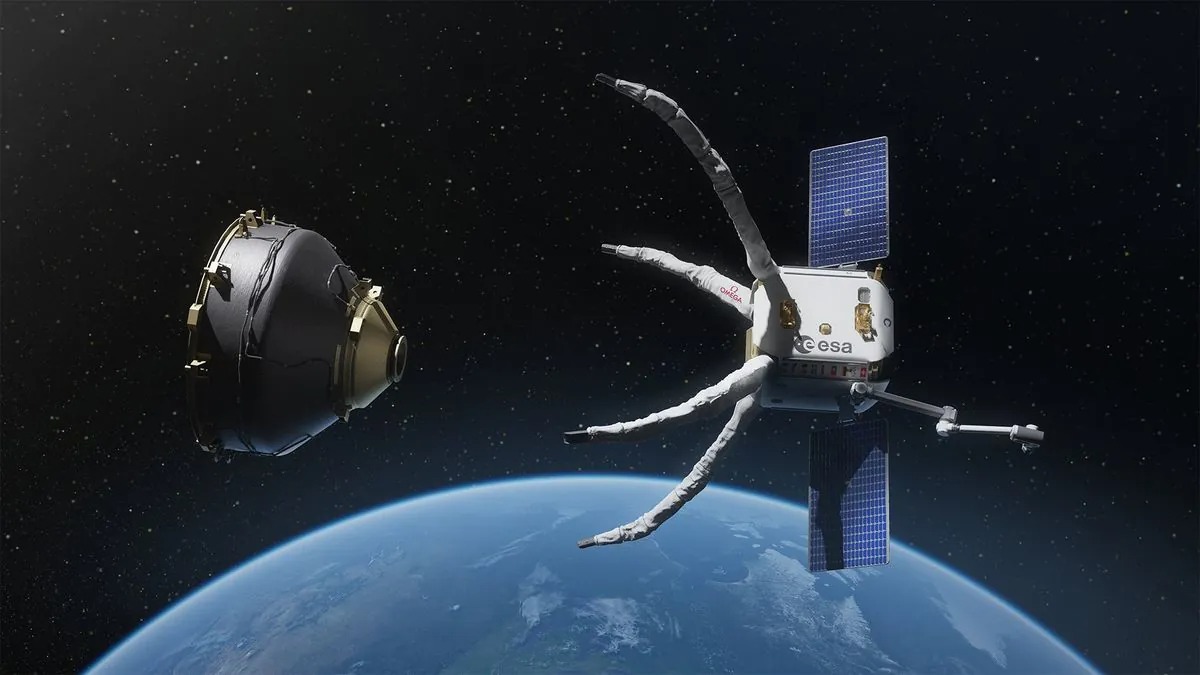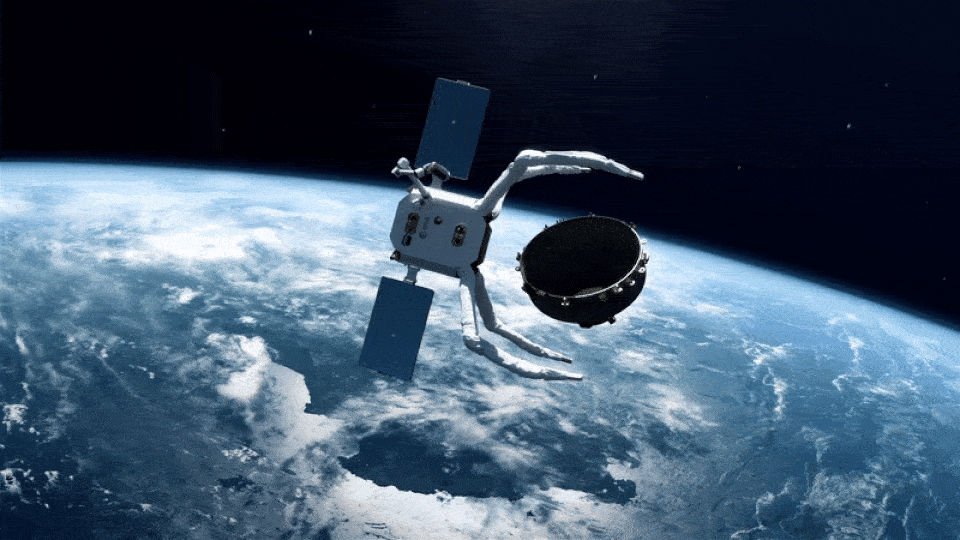A startup that deals with the problem of space debris removal has got a chance to test its technology. The Swiss company ClearSpace hopes to launch its ClearSpace-1 mission in 2026 on an Arianespace Vega-C launch vehicle with the aim of capturing and removing a piece of orbital debris weighing 112 kilograms.

The ClearSpace mission will attempt to remove the spent part of the Vega launch vehicle launched in 2013. The company’s spacecraft will use a claw with four “arms” to grab the part and transport it to a lower orbit, where the spacecraft and the heavy fragment will enter the denser layers of the atmosphere and burn together. The goal is to demonstrate the effectiveness of ClearSpace technology, and success can potentially pave the way for the commercialization of the technology.
Luc Piguet, CEO and co-founder of ClearSpace, described the upcoming mission as a turning point in the space industry. “We urgently need to bring solutions to a fundamental problem: we are putting objects into space quicker than they are being removed,” Piguet explained.

Space debris in low Earth orbit is a serious problem. It generally consists of spent parts of old rockets, decommissioned satellites and fragments formed as a result of collisions between them. Such debris rotating at very high speed in orbit can cause further harm, potentially disabling functioning satellites or even harming the International Space Station (ISS) and pose a threat to future missions.
Stéphane Israël, CEO of Arianespace, pointed out the scale of the problems of space debris, saying that now there are more than 34 thousand pieces of debris larger than 10 centimeters in Earth orbit and about 6,500 active satellites, and by the end of the decade their number may grow to 27 thousand.
Various solutions for cleaning up space debris are being developed, and during testing, some of them turn out to be more successful than others. A fully tested, reliable technology has not yet appeared, although ClearSpace is clearly aiming to win in this area.
Earlier we reported on how an astronaut from Russia threw garbage from the ISS during a spacewalk.
According to Digital Trends
Follow us on Twitter to get the most interesting space news in time
https://twitter.com/ust_magazine

